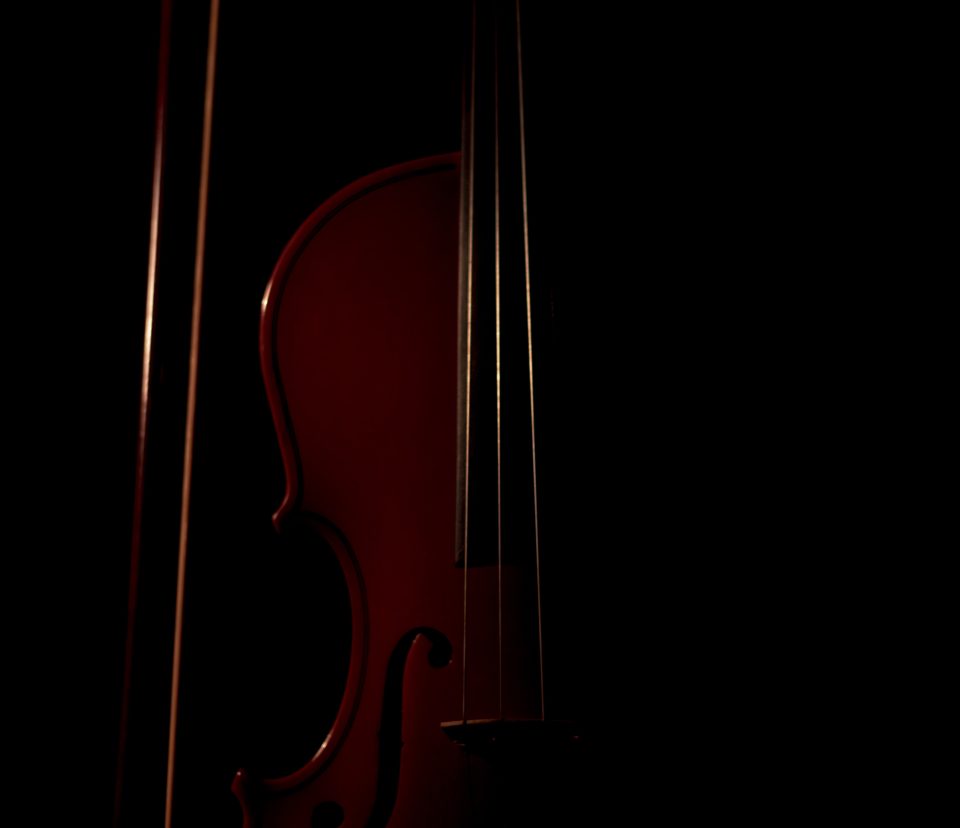So you’ve practiced your riffs until your fingers bleed, nailed down those harmonies, and perfected your stage presence to rock star status. But before you hit the stage for that big live show, there’s one crucial step you can’t overlook: prepping your guitar for action. From tuning up to packing those essential accessories, this ultimate guide will have you and your trusty axe ready to shred in style – because after all, no one wants a guitar that’s more out of tune than your drummer’s jokes. Let’s dive in and get that baby show-ready!
Contents
- 1 Essential Pre-Show Guitar Maintenance
- 2 Choosing the Right Strings for Your Performance
- 3 Optimizing Your Guitar’s Setup for Live Sound
- 4 Navigating the Soundcheck for Optimal Guitar Tone
- 5 Creating a Backup Plan: Spare Guitars and Equipment Essentials
- 6 Mastering On-Stage Guitar Changes and Repairs
- 7 Utilizing Pedals and Amplifiers to Enhance Your Live Sound
- 8 FAQs
- 9 Rock On and Tune Up!
Essential Pre-Show Guitar Maintenance
So, you’re gearing up for a killer show and want your guitar to be in top shape, right? Well, you’ve come to the right place! Here are some essential pre-show maintenance tips to ensure your guitar is ready to rock:
- **String Change:** Make sure your strings are fresh and ready to shred. Old, rusty strings will only hold you back, so grab a pack of your favorite brand and give your guitar a fresh set.
- **Tuning:** Tune up your guitar and make sure it’s in perfect pitch. No one wants to hear a wailing cat on stage, so take the time to get those strings sounding sweet.
- **Cleaning:** Give your guitar a good wipe down and clean those frets. A shiny guitar is a happy guitar, and a happy guitar makes for a happy guitarist.
Remember, your guitar is your trusty sidekick on stage, so treat it right and it will treat you right. With a little pre-show maintenance, your guitar will be primed and ready to steal the show!

Choosing the Right Strings for Your Performance
When , it’s essential to consider a few key factors. First and foremost, you’ll want to think about the type of music you’ll be playing. Are you strumming some sweet acoustic tunes or shredding on an electric guitar like a rock god? Different strings are designed for different playing styles, so make sure you choose the ones that will complement your musical prowess.
Next, think about the gauge of the strings. Do you prefer light and easy strings that bend like Beckham, or are you a fan of heavy-duty strings that can withstand your killer solos? Remember, thicker strings offer more durability, while thinner strings provide increased flexibility and ease of play.
Don’t forget to consider the material of the strings. From classic nickel-plated steel to fancy coated strings, there are endless options to choose from. Experiment with different materials to find the perfect sound that matches your unique style. Who knows, maybe those titanium strings will take your performance to the next level!
Lastly, don’t be afraid to mix and match different strings to create your own signature sound. Embrace your inner musical scientist and have fun trying out new combinations. After all, the right strings can make all the difference in elevating your performance from mediocre to magnificent. So go ahead, unleash your creativity and rock out with the perfect strings!

Optimizing Your Guitar’s Setup for Live Sound
So you’re ready to rock the stage with your guitar, but is your setup ready too? Making sure your guitar is optimized for live sound can make a huge difference in your performance! Here are some tips to help you get the most out of your setup:
Check your intonation: Nothing kills a killer solo like out-of-tune notes. Make sure your guitar’s intonation is spot on by adjusting the saddle position on your bridge.
Get the right strings: Strings can make a huge difference in your sound. Experiment with different brands and gauges to find the ones that give you the tone you’re looking for.
Adjust your pickup height: The height of your pickups can affect the tone and volume of your guitar. Play around with different heights to find the sweet spot for your live sound.
Invest in a good amp: Your amp is just as important as your guitar when it comes to live sound. Make sure you have a reliable amp that can handle the size of the venue you’re playing in.

So you’ve made it to soundcheck, ready to unleash your killer guitar skills and rock the stage. But before you can blow everyone’s minds with your shredding solos, you need to dial in that perfect tone. can be a bit like trying to find your way out of a maze. Fear not, fellow guitarist, I’m here to guide you through this treacherous journey.
First things first, make sure your guitar is in tune. I know, I know, tuning is boring. But trust me, a well-tuned guitar is the key to unlocking the perfect tone. Use a tuner or even better, invest in a pet octopus that can tune your guitar for you with its eight tentacles. It’s a real game-changer, I promise.
Next up, experiment with different amp settings. Play around with the treble, mids, and bass knobs until you find that sweet spot that makes your guitar sing. And don’t forget to unleash your inner mad scientist by tweaking the gain and reverb controls to add some extra flavor to your tone. Remember, there’s no such thing as too much reverb – unless you’re trying to play a tight funk groove. In that case, dial it back a bit.
Once you’ve dialed in your amp settings, it’s time to test your tone in the context of the full band. Make sure you’re cutting through the mix without overpowering the other instruments. If you find yourself getting lost in the sea of sound, consider boosting your midrange or adjusting your pickups to find that perfect balance. And most importantly, don’t be afraid to ask for feedback from your bandmates – unless they’re bass players, in which case their opinion is irrelevant.

Creating a Backup Plan: Spare Guitars and Equipment Essentials
When it comes to playing live gigs, having a backup plan is essential. You never know when a string might break, a pedal might suddenly die, or a crazy fan might decide to stage dive onto your precious guitar. That’s why every serious musician needs to invest in some spare guitars and equipment essentials to avoid any potential disasters.
Spare Guitars:
- Make sure to bring at least one backup guitar to every gig.
- Having multiple guitars on stage not only looks cool but also ensures that you can keep playing if one guitar goes out of commission.
- Don’t forget to tune and set up your spare guitars before the show, so you can easily switch if needed.
Equipment Essentials:
- Always carry extra sets of strings, picks, and cables. You never know when you might need them.
- A reliable tuner is a must-have to keep your guitars sounding spot on.
- Consider investing in a pedalboard with backups of your essential effects pedals. You don’t want to be stuck without your favorite overdrive or delay.
So, next time you hit the stage, make sure you have your backup plan in place. With spare guitars and equipment essentials by your side, you can rock out without any worries. Just remember, it’s better to be safe than sorry – especially when it comes to your precious gear!
Mastering On-Stage Guitar Changes and Repairs
After playing your guitar on stage for a while, you may notice that it’s not sounding as sweet as it used to. Fear not, because is easier than you think! Here are some tips to keep your instrument in top shape:
- Keep spare strings handy: Nothing ruins a performance like a broken string. Make sure to always have spare strings in your gig bag so you can quickly change them out if needed.
- Invest in a quality tuner: Tuning your guitar on stage is crucial for sounding your best. A good tuner will ensure that you’re always in tune, no matter how rowdy the crowd gets.
- Learn some basic repair skills: Knowing how to fix minor issues like loose knobs or a buzz in the frets can save you from potential disasters during a show. Watch some tutorials online or take a class to brush up on your repair skills.
Remember, a well-maintained guitar is a happy guitar, and a happy guitar makes for a happy musician! So take the time to care for your instrument and it will reward you with beautiful music for years to come.
Utilizing Pedals and Amplifiers to Enhance Your Live Sound
So you’ve got your guitar, your amp, and your pedals all set up for your live show – now what? Let’s dive into how you can utilize these tools to take your live sound to the next level!
First things first, let’s talk about pedals. From overdrive to delay to wah-wah, there are a plethora of options to choose from. Experiment with different combinations to find the perfect sound for your set. Don’t be afraid to get a little wacky – after all, that’s where the magic happens!
Next up, let’s chat about amplifiers. Your amp is like the cherry on top of your sonic sundae. Experiment with different EQ settings and gain levels to dial in the perfect tone. And don’t forget about the volume knob – a little extra oomph can make all the difference in a live setting!
In conclusion, pedals and amplifiers are like the secret sauce to your live sound. Embrace the opportunity to experiment and get creative with your setup. Who knows, you might just stumble upon the perfect combination that will have your audience begging for more!
FAQs
How can I ensure my guitar stays in tune during a live show?
First of all, make sure your guitar is properly set up before the show. Use quality strings and consider investing in a locking tuner system. Also, don’t forget to stretch your strings before performing. And if all else fails, just blame it on the bass player.
What are some essential tools to have on hand for guitar maintenance during a live show?
Make sure you have a tuner, string cutter, extra strings, and a screwdriver for any last-minute adjustments. And of course, a trusty bottle of beer or two can also serve as a makeshift slide if needed.
How can I prevent feedback and unwanted noise issues with my guitar during a live performance?
Properly shield your guitar’s electronics to reduce interference. Keep your guitar away from speakers and monitor wedges on stage. And if all else fails, just turn up the distortion and pretend it’s all part of the show.
What should I do if my guitar needs a quick tune-up during a set?
If you need to make a quick adjustment, try muting your strings and using the tuning pegs to quickly get back in tune. And if that fails, just pull a Pete Townshend and smash your guitar - that’ll definitely get you some attention.
Rock On and Tune Up!
Well folks, there you have it – the ultimate guide to preparing your guitar for live shows! Armed with these tips and tricks, you’ll be ready to rock out on stage like never before.
Just remember, a well-tuned guitar is like a well-oiled machine – it’ll keep the show running smoothly and leave your audience wanting more. So grab your guitar, get practicing, and start shredding those strings like the rockstar you were meant to be. Good luck and rock on!



